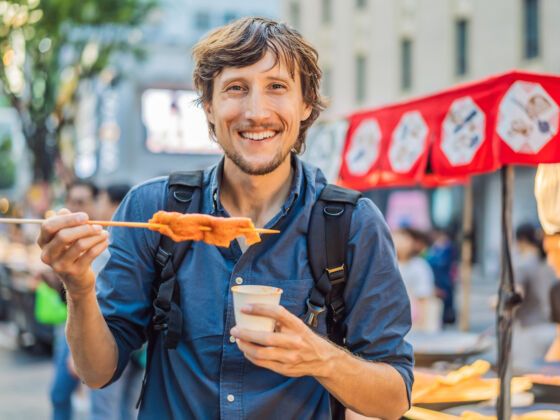South Korea is one of those places where the English language has been adopted in a hectic, freewheeling manner, so that over the years a unique regional brand of English has become fixed in usage. This idiosyncratic patois is known as “Konglish.” In Seoul, Busan, and the other major cities, English is understood (but not spoken) by most, while Konglish is used by all.

Some words — like “driver” for “screwdriver,” “self” for “self-serve,” and “service” (meaning anything “on the house”) — can be figured out on the first encounter. Other words in Konglish manage to outmaneuver our semantic radar, leading to embarrassing or unfortunate situations. Here are 10 you’re likely to come across in South Korea:
1. On a first meeting, you’ll be asked for your name card. This is not a piece of ID, a travel document, or some sort of name tag. It’s simply your business card.
2. It’s best not to mix work and romance, but a foreigner unfamiliar with the Konglish term meeting may end up doing just that. While meetings in the Western context usually involve stuffy conference rooms, in South Korea a meeting is a blind date arranged by a friend.
3. Around exam time every year in high schools and universities across the country, one can hear students shouting the word Fighting! Who is being fought? What is being fought for? This is not in fact the starting signal for a battle royale. Rather, it’s an expression of strong encouragement, like “You can do it!”
4. A case of the whole being mistaken for the part, the word schedule in Konglish is used to refer to an appointment. When someone says, “I have a schedule,” it’s not a non sequitur but a way of saying, “I have something else going on at that time and won’t be able to make it.”
5. Some things don’t always become more comprehensible after you’ve learned to read Hangul, the Korean script. For instance, one may notice the word “health” or “fitness” enigmatically covering the side of a building and wonder just what sort of existential statement is being hinted at. Such a misunderstanding stems from the Korean knack for concision — dropping word endings for convenience. Thus, a health is a health club and a fitness is a fitness center, just as in South Korea a department is a department store.
6. The first time I visited a dry cleaning shop in Seoul, I was shocked and offended to hear the woman tallying up my laundry items refer to my boxer shorts as panties. Indeed, the terms “boxers” and “briefs” appear to be unknown here. There are only “men’s panties” (namja panty) and “women’s panties” (yeoja panty).
7. While South Koreans most often drop the second part of a compound word, as we’ve seen above, it can happen at the beginning as well. Such is the case with event. In Western English almost anything can be an “event”: a wedding, a rocket launch, a concert, or a promotional sale. In South Korea an “event” is only the last of these occasions — a “special event” or a limited-time-only sale. These are also known domestically as poktan (or “bomb”) sales.
8. A word of the younger generation that seems weird at first but less so with time and familiarity is the slang term skinship. A meeting of the words “skin” and “friendship,” “skinship” is any sort of physical contact between a romantic couple. Usually involving touching or caressing, “skinship” can be cause for complaint if it takes place in a movie theater or some other public space. The word certainly rolls off the tongue a lot easier that “public display of affection” and is more evocative than “PDA.”
9. The all-engaging pursuit of most university juniors and seniors in this age of competition is to up their specs. For me that means pushing up my glasses — or “spectacles” — when they slide down the bridge of my nose. Somehow, in South Korea the word “specifications” was at one time mistaken for the word “qualifications” and then shortened to “specs.” In order to improve their specs, young adults here cram for TOEIC and TOEFL tests, serve in internships, acquire certificates for computer skills, and go to various other measures to gain a tiny but crucial edge over the competition.
10. Some Konglish terms seem to be here to stay. At one time, I took up the personal crusade of explaining the standard English meaning of the word hip whenever I heard the Konglish version, a substitution for the word “butt,” “bum,” “posterior,” “rear end,” etc. However, after attempting to “correct” a medical professional who told me he’d be giving me an injection in my “hip” and receiving the sort of kindly, tolerant glance usually reserved for half-wits, I gave up on my mission. And so I got a shot in my hip.